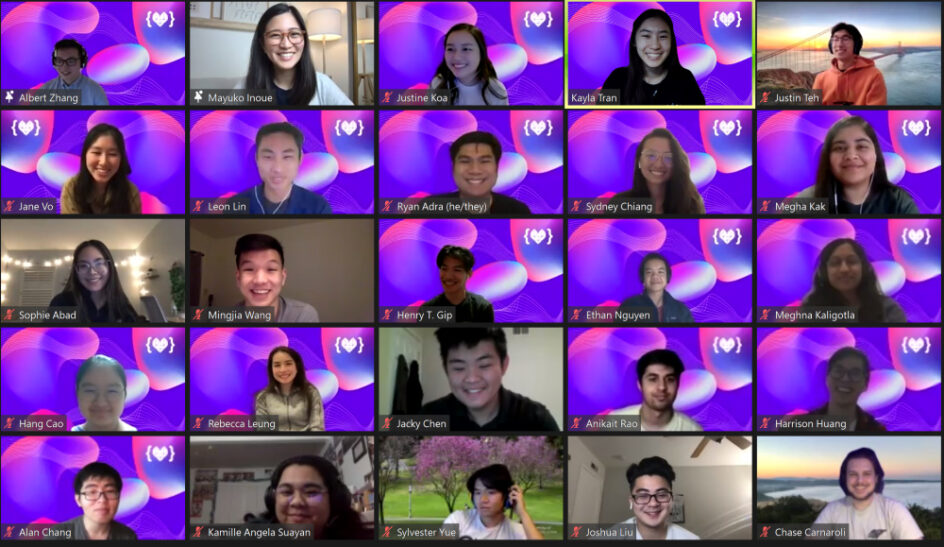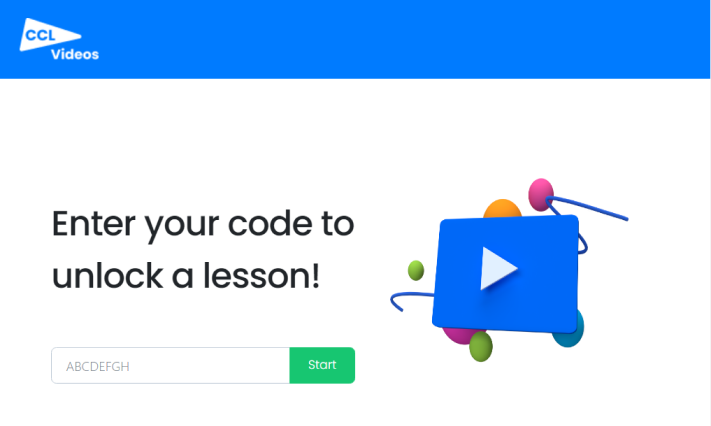Commit the Change: Students Creating Software for Nonprofits Gain Real-World Experience
Looking back, it might seem an untimely decision to start a new student club just before the COVID-19 pandemic shut down the UCI campus and surrounding community. Yet Commit the Change, started in March 2020 by a group of students in the Donald Bren School of Information and Computer Sciences (ICS), pressed on with their goal of developing high-quality software for nonprofit organizations while creating hands-on learning opportunities for UCI students. Now, more than a year’s worth of Zooms later, the club has close to 60 active members, a portfolio of four project collaborations with local nonprofits, and a 2021 Anteater Award for Best New Organization.

“It is impressive how the group has grown in one year,” says Associate Professor of Teaching Jennifer Wong-Ma, the club’s faculty adviser, “and a pandemic year at that!”
Part of their success stems from their dual focus on helping local nonprofits and mentoring fellow UCI students, putting their own twist on the “tech for social good” model.
An Opportunity for Hands-On Learning
UCI isn’t the first university to have students volunteer their time to develop technology for nonprofit organizations. “The concept isn’t original,” says Albert Zhang, one of the co-founders who served as president last year. He and a few friends — Harrison Huang, Justine Koa, Kayla Tran and Fernan Lukban — decided to follow in the footsteps of students at other schools and create an organization focused on using technology to positively influence the community around them. Examples of similar clubs include Blueprint at UC Berkeley, Nova at UCLA and Code the Change at USC. “Other schools have clubs like this, but what was novel was our execution.”
Zhang, who was a third-year computer science major at the time, says they wanted to mentor first- and second-year students. “You learn theory and the basics in school, but then how do you get from that theory to building real, scalable infrastructure that companies want us to deliver? There’s a bit of a gap in the knowledge.” Many students gain that knowledge through an internship or by taking a capstone course their senior year, but Commit the Change provides more students with practical experience, earlier in their college career.
“Commit the Change is providing real-world experiences and opportunities to ICS students at all levels,” says Wong-Ma. “Their ability to incorporate first- and second-year students in their development teams provides students with both mentorship and opportunities to engage and apply their learning in a real-world environment. As a result, the members are more prepared for internship opportunities and future success.”
Ethan Nguyen was one of the first beneficiaries of this strategy. In March 2020, the first-year computer science major went to see a panel of students talk about their internships at top-tier companies. He recognized Zhang as one of the panelists — they had met a few times before — so he talked to him after the panel. “He briefly mentioned this club that he and a few friends were starting, so I half-jokingly said, ‘If you guys need any help, let me know,’” recalls Nguyen, laughing. “I was a first-year student with literally no experience, talking to this guy who had interned at all these crazy companies, so it was just a conversation filler!” But a few days later, Zhang contacted Nguyen. “The rest is history,” says Nguyen, who is now serving as co-president of the club, as the recently graduated Zhang starts his new position as a software engineer at Microsoft.
“We’ve really pushed for inclusivity,” says Nguyen. “A core part of the club is to give experience to people who don’t have experience, and that doesn’t really work if you just recruit the best people.” This philosophy is why the club includes so many first-year students. “We did that on purpose,” says Nguyen, who adds that you don’t have to be a computer science major to join. Students from other majors, including engineering, cognitive science and business administration, are welcome. “As long as you show a lot of interest and are committed, that’s all we really need.”
The commitment isn’t trivial, as students can spend up to eight hours a week working on their team’s project, but based on those returning for a second year, the work seems to be worth it. “I was really surprised, because [this] is not a negligent amount of work, but I think nearly everyone that wasn’t graduating wants to come back,” says Nguyen. “That was a really good metric to determine how well we did last year.” A more personal metric of success was lining up a summer internship at Tableau Software. “I learned so much in such a short amount of time,” he says. “Commit the Change helped me get my current internship!”
Tech for Social Good
A broader metric of the club’s success is its number of projects, and four local nonprofits have already benefited from the free support provided by students.
The first project, which the initial club members started working on in April 2020, was a collaboration with Crime Survivors, an advocate for crime victims that is focused on mental, physical, emotional and financial recovery. The team converted paper-based booklets into digital resources, saving the organization money on printing costs and making its information more readily available for sharing and repurposing.
Then, in September 2020, the club announced its partnerships for the 2020-21 academic year with the following nonprofits:
- Child Creativity Lab, which cultivates creativity in kids by providing hands-on activities that encourage exploration;
- Justice for Families, which helps the families of incarcerated loved ones find community and support; and
- Waymakers, which builds safer communities by helping individuals make their way through conflict and crisis to a place of strength and stability.
The CCL project had two main goals: replace the paper-based waiver for CCL volunteers with an online waiver system, and create a platform for selling CCL educational kits for children. The Justice for Families project involved creating a mobile application to help the families of incarcerated loved ones connect with others who are dealing with (or have faced) similar challenges. The Waymakers project involved helping the nonprofit electronically capture volunteer and inventory data for their community programs.
Each project had its own design team and development team, and each team had a tech lead who reported to the project VP. Based on responses to a Google survey, members were assigned to the projects according to their preferences and skills. “We had a question on the form [about whether] you were more suitable for front-end or back-end work, mobile development, or just full stack work,” says Nguyen, who served as a tech lead for the Justice for Families project, while Zhang was a tech lead for the CCL project.
“The challenge wasn’t necessarily developing the application; it was developing the application for our clients to meet their needs,” says Zhang. “You can’t just build it and throw it at them, which would be the easy thing to do. It’s a lot harder to deliver something that doesn’t just work but works for the clients.”

The club is currently lining up projects for the 2021-22 academic year. If you are a nonprofit interested in a collaboration, email committhechange.uci@gmail.com.
If you are a student interested in joining the team, recruitment will open up in September. Nguyen encourages students, regardless of their level of experience, to apply. “If anybody has any inkling of wanting to join,” he says, “please reach out and apply, and we’ll go from there!”
— Shani Murray